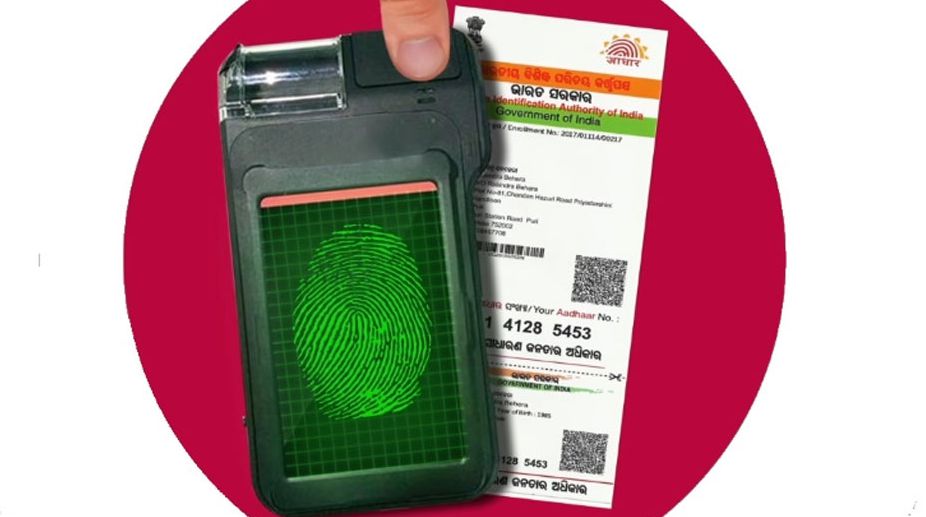India’s Got Latent: SC issues notice on YouTuber Ashish Chanchlani’s plea against FIRs
SC issues notice on YouTuber Ashish Chanchlani’s plea to quash or transfer FIR in India’s Got Latent case; tagged with Ranveer Allahabadia’s petition.

Represeny
The Supreme Court on Tuesday said that the provision of Aadhaar Act that seeks to validate the data collected from 2009 to 2016 when the statute was enacted was “badly drafted” and it could not be read to mean waiving of fundamental rights of the people.
The five judge constitution bench headed by Chief Justice Dipak Misra told Attorney General K.K. Venugopal that the supposed deemed consent for parting with biometric data can’t be stretched to mean waiving of fundamental rights to privacy of the people.
Advertisement
Other judges on the constitution bench are Justice A.K. Sikri, Justice A.M. Khanwilkar, Justice D.Y. Chandrachud and Justice Ashok Bhushan.
Advertisement
The Aadhaar (Targeted Delivery of Financial and Other Subsidies, Benefits and Services) Act, that was enacted in 2016 seeks to validate the collection of biometric and demographic Adata of the people from 2009 till law came into existence in 2016 on the strength of administrative instructions.
Section 59 says: “Anything done or any action taken by the Central Government under the Resolution of the Government of India, Planning Commission bearing notification number A-43011/02/2009-Admin. I, dated the 28th January, 2009, or by the Department of Electronics and Information Technology under the Cabinet Secretariat Notification bearing notification number S.O. 2492(E), dated the 12th September, 2015, as the case may be, shall be deemed to have been validly done or taken under this Act.”
Unimpressed by the argument advanced by the Attorney General, Chief Justice Misra said: “You have said that it was voluntary and with minimal invasion. We can’t hold that the fundamental rights can be waived or compromised” by stretching the deemed consent to that extent.
The court’s observation as Venugopal sought to defend the data collected from 2009 to 2016 on the strength of administrative orders and without obtaining the consent of the people on the collection and storage of their biometric and demographic data.
The Attorney General said that people gave their biometric data voluntarily and at that point of time, it did not violate the privacy as right to privacy was not a fundamental right.
Defending the insertion of Section 139AA of the Income Tax Act that mandates the linking of PAN number with Aadhaar, Additional Solicitor General Tushar Mehta said that the said provision advanced the “legitimate interest of the State, it did not suffer from any lack of proportionality and was not arbitrary”.
He said that the provision was introduced to eliminate the duplicate PANs from the system, which he said were being used for illegal transactions.
Mehta asserted that by linking Aadhaar with PAN helped in curbing the tax evasion, prevention, accumulation and circulation of black money and money laundering including preventing terror financing – which he described as legitimate state interest.
The top court’s nine judge constitution bench had on August 24, 2017 while holding that right to privacy was fundamental, which is a intrinsic and core feature of life and personal liberty, had said that yet state can for legitimate reasons such as protecting national security, preventing and investigating crime could collect and store data about people.
“Apart from national security, the state may have justifiable reasons for the collection and storage of data”, the majority judgment by Justice Chandrachud had said: “In a social welfare state, the government embarks upon programmes which provide benefits to impoverished and marginalised sections of society.”
He had however calling for a robust data protection regime, which “requires a careful and sensitive balance between individual interests and legitimate concerns of the state”.
The constitution bench is hearing a batch of petitions by former Karnataka High Court Judge K.S. Puttuswamy, Magsaysay awardee Shanta Sinha, feminist researcher Kalyani Sen Menon, social activist Aruna Roy, Nikhil De, Nachiket Udupa and others challenging the constitutional validity of the Aadhaar scheme on the touchstone of the fundamental right to privacy.
Mehta will continue with his arguments on Wednesday.
Advertisement